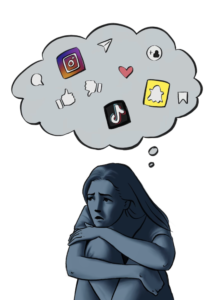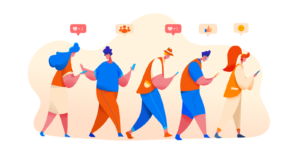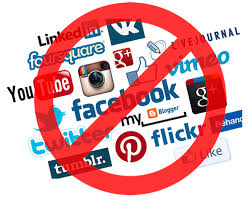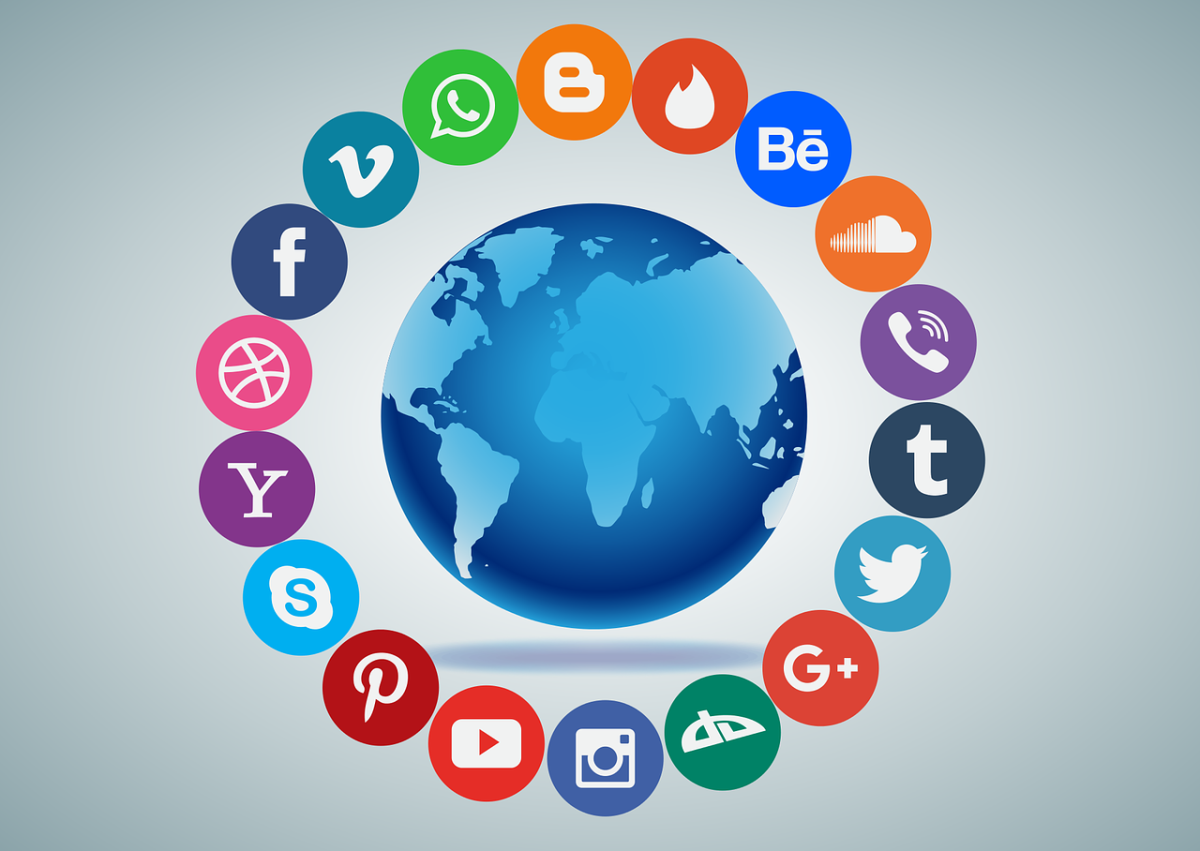Introduction
Live without social media in 2022 is difficult as in the digital age, social media has become a ubiquitous presence in our daily lives. From connecting with friends and family to promoting businesses and staying up-to-date with current events, it’s hard to imagine life without it.
However, for some people, the constant stream of notifications and pressure to present a curated version of themselves can be overwhelming, leading them to consider living without social media.

Benefits of Living Without Social Media
Improved mental health
You should try to remove yourself from social media because it is bad for your health. There are many problems that arise from social media use. For example, social media use is linked to higher rates of anxiety, depression, and low self-esteem. If you are suffering from these conditions, you should try to stop using social media completely.
Additionally, This can help you to gain some relief. One study showed that heavy social media use is linked to higher rates of anxiety, depression, and low self-esteem.
Importantly, Another benefit of living without social media is that you can reduce the amount of time you spend comparing yourself to others and expose yourself to fewer negative stimuli. You can even make it a habit to check your social media accounts once a day. If you do, you will notice that you spend less time worrying about what other people think of you.
Moreover, You will even be less likely to compare yourself to others. This will help you to be more contented with yourself and your own life. People who live in cities are more likely to be affected by social media. If you are a city dweller, you are also more likely to be exposed to a high number of negative stimuli.

Increased productivity
Productivity is what we do to make sure we get the results we need in our day-to-day lives. We can increase our productivity by getting rid of distractions and focusing on our goals and our priorities. Most people use social media to distract themselves from the real world. They use it as a form of entertainment.
In addition, They waste hours on social media apps like Facebook and Twitter. The problem is that social media is just too easy to access and too enticing. It is a very tempting distraction. People spend hours every day on social media. They read and share other people’s posts. They listen to music. They play video games. They surf the web. All of these things are distractions. But, they’re not the real world.
Moreover, That is where we spend our time. The more time we spend on social media, the less time we have to focus on our goals and priorities. When we spend too much time on social media, we get addicted to it. This means that it will pull us away from the real world. That is why people get sick of social media. They feel miserable and are ready to quit. In the end, they lose their productivity.

Greater sense of privacy
Social media platforms often collect vast amounts of personal data from their users, which can be sold to third parties or used for targeted advertising. If you want to keep your privacy, then you shouldn’t use social media platforms.
In addition, Social media companies store vast amounts of personal data from its users. This data is then sold to advertisers. Social media platforms can also use this data to target ads to specific audiences. As a result, social media platforms may share the information about you with other companies. This may include your name, address, email, phone number, and birthdate.
Further, If you don’t want your private information shared, then you should disable the ability to share it. You should also ask the social media platforms that you use to keep your information private. Some people may say that the information that social media companies store is not a problem because it’s anonymous.
However, the more personal information that is stored, the more easily it can be accessed. That means that your privacy is more easily compromised. If you want to protect yourself, then you should use social media only when it is absolutely necessary. You should never give out personal information unless you know that it will help you. If you use social media, then you should make sure that you are using it in the right way.

Tips for Living Without Social Media
Set boundaries
If you’re not ready to completely cut ties with social media, you can still set limits on your usage. Consider setting specific times of day when you allow yourself to check your accounts, or designate certain days of the week as social media-free days.
importantly, A good way to set boundaries with social media is to control your usage. You can do this by limiting the amount of time that you spend on social media. Many people who spend too much time online end up getting hooked on social media. That’s why it is important to put limits on your usage.
Moreover, You can do this by setting specific times of day or days of the week when you can check your accounts. You can also make sure that you have some social media-free days during the week. You can make sure that you are not spending too much time online by making sure that you are doing something else. You can do this by reading a book, talking to friends or family members, and watching a movie.

Find alternative ways to connect
Most people are connected to each other via social media, especially through Facebook, Twitter, and Instagram. These sites provide many ways for us to communicate with others. If you want to be connected to someone, you can easily do so by using these sites. But social media doesn’t provide a way for you to speak directly with someone.
In addition, You may feel like you can’t speak with your friends and family in person because of the high cost of doing so. But there are ways to communicate with them without going through the expense of traveling or paying money. You can call them on the phone, send them a text message, or meet them in person. Social media is a great way to stay in touch with friends and family.
Moreover, You can see what they are doing, share photos with them, and talk to them about the things that are going on in their lives. You can also follow their updates on social media sites, including Facebook, Twitter, and Instagram. While social media can be a convenient way to stay in touch with friends and family, it’s not the only way. Consider alternative methods of communication, such as phone calls, text messages, or in-person meetings.

Use social media-free apps
If you are looking to cut back on your social media usage, you should consider using one of the available social media-free apps. These applications allow you to browse the web without being distracted by social media sites. These apps help you to stay away from those distractions. You can access these apps on your smartphone or on your computer.
Additionally, Using these apps may not eliminate your social media usage entirely, but they will help you to manage your time better. You may be able to find social media-free apps that you like better than the ones that come with your phone or computer.
For example, you may want to download the “Do Not Disturb” app that allows you to control your notifications. You can schedule the amount of time you want to be distracted each day. You can also block certain websites on a daily basis. Many of these apps offer a variety of additional features as well.
Moreover, You may also want to consider downloading the “Self Control” app. This application lets you block yourself from social media sites. You can set a time limit for how long you are going to spend on social media.

FAQs
Q: Why would someone want to live without social media in 2022?
A: People may choose to live without social media to reduce distractions, protect their privacy, improve mental well-being, and reclaim their time for other activities.
Q: Can I still stay connected with friends and family without social media?
A: Absolutely! You can stay connected through other means such as phone calls, text messages, email, video chats, and in-person interactions.
Q: How can I fill the void left by not using social media?
A: There are countless activities to fill your time, such as pursuing hobbies, reading books, engaging in physical exercise, spending time with loved ones, exploring nature, and learning new skills.
Q: What are some challenges I may face when quitting social media?
A: Initially, you may experience a fear of missing out (FOMO), a sense of disconnection, or difficulty breaking the habit. However, with time, you’ll adapt and discover new ways to enrich your life.
Q: Will quitting social media impact my professional life or job prospects?
A: It depends on your specific profession or industry. While social media can be beneficial for networking and certain careers, alternative methods like professional networking events, LinkedIn, and industry-specific platforms can help you stay connected professionally.
Q: How do I resist the temptation to return to social media?
A: Setting clear goals, finding alternative activities, creating a support system, and practicing self-discipline can help you resist the temptation and stay committed to living without social media.
Q: Will I miss important news and events by not using social media?
A: No, you can stay informed through traditional news sources, newsletters, news apps, and websites. You can also subscribe to specific topics or areas of interest to receive updates directly to your email.
Conclusion
Living without social media can be a challenging but ultimately rewarding decision. It can improve mental health, increase productivity, and protect your privacy.
Further, While it may take some time to adjust to life without social media, the benefits are well worth it. By setting boundaries, finding alternative ways to connect, and using social media-free apps, you can successfully navigate the transition and live a happier, healthier life without social media.

